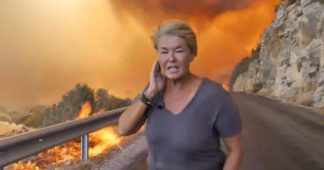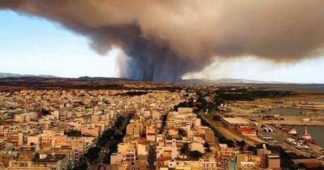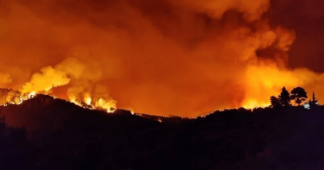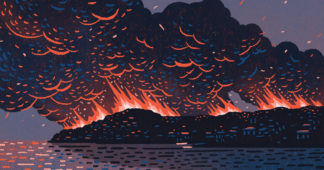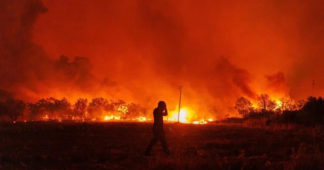By Constantine Capsaskis
Greece continues to struggle with the implacable destruction caused by wildfires that continue to burn across the country, with the front in northeastern Greece still active after nine days in the largest recorded fire on European soil in years.
Despite the efforts of over 600 firefighters from all over Europe that have been working around the clock, supported by a fleet of aircraft and helicopters, there is no end in sight.
Aside from the raging fire in northeastern Greece, with evacuations being ordered as late as Sunday, there are large fires in other parts of Greece, including a major blaze on the island of Andros.
A total of 21 people have also perished in this latest round of fires, among them two children. Most of the bodies were found in northeastern Greece.
With conspiracy theories on the causes of the fires swelling, there was a breakdown of social order this week when three men filmed a group of 13 migrants they had locked up in a trailer, accusing them of arson.
The vigilantes were placed under house arrest pending their trial, while the migrants whom they had imprisoned are facing charges of attempted arson. The first four migrants of the group were released without restrictions following a meeting with a magistrate.
The environmental damage caused by the fires has also dismayed both the public and experts, with the latter warning that regeneration in the burnt areas may take decades. As of Thursday there were a total of 128,148 hectares of burnt land, almost a 200% increase compared to the annual average. In Attica alone, more than 33% of wooded areas have been burnt in the last seven years.
There is also a significant degradation of air quality due to toxic particles from the fires, something experts warn will continue for a long time after the fires are put out. In fact, the volume of particles is so high that they have reached Malta and southern Italy.
The fires even damaged the monastery of Osios Loukas in Central Greece, a UNESCO World Heritage Site and one of the most important Byzantine monuments in the world.
We remind our readers that publication of articles on our site does not mean that we agree with what is written. Our policy is to publish anything which we consider of interest, so as to assist our readers in forming their opinions. Sometimes we even publish articles with which we totally disagree, since we believe it is important for our readers to be informed on as wide a spectrum of views as possible.

